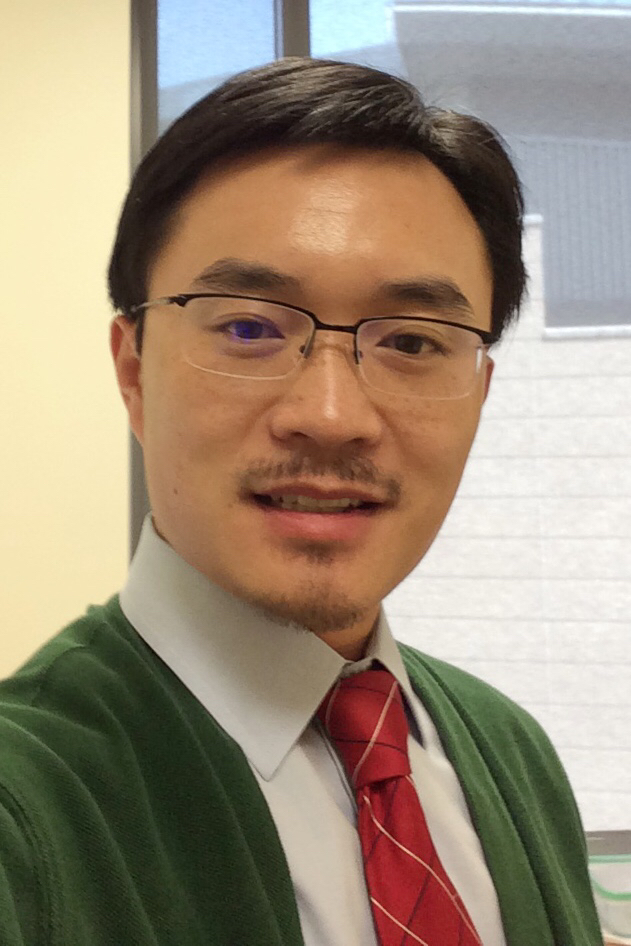Research Group |
Research Directions |
Web Links & Publications |

Dr. Xiang-Qun (Sean) Xie
Associate Dean of PharmacoAnaltyics,
Professor of Pharmaceutical Sciences
Director of the Pharmacometrics Systems Pharmacology program
|
- GPCR CB2 Cryo-EM & X-ray biophysics for ligand/drug design by PSP
- AI Machine-/Deep-Learning for preclinical & clinical data
- PharmacoAnalytics


|
Web Links
Representative Publications
-
Bian Y and Xie X-Q* Artificial Intelligent Deep Learning Molecular Generative Modeling of Scaffold-Focused and Cannabinoid CB2 Target-Specific Small-Molecule Sublibraries. Cells 2022, 11, 915. click
-
Jing Y&, Hu Z&, Fan P, Xue Y, Tarter RE, Kirisci L, Wang J, Vanyukov M, Ralph ET and Xie X-Q*. Analysis of Substance Use and Its Outcomes by Machine Learning I. Childhood Evaluation of Liability to Substance Use Disorder. Drug and Alcohol Dependence. 2020, 206: 107605; PMID: 31839402. And ML II. PMID: 31615693. click
-
Xing C&, Zhuang Y&, Xu T&, Feng Z&, … Xu E, Zhang C and Xie XQ* Cryo-EM Structure of Human Cannabinoid Receptor CB2-Gi Signaling Complex. Cell 2020,180(4):645-654, PMID:32004460. click
|

Assistant Professor of Pharmaceutical Sciences
|
- In-silico antibody/antigen discovery
- In-silico small molecule drug discovery
- In-silico DMPK simulation
- AI algorithms


|
Web Links
Representative Publications
-
Tianjian Liang, Hui Chen, Jiayi Yuan, Chen Jiang, Yixuan Hao, Yuanqiang Wang, Zhiwei Feng*, and Xiang-Qun Xie*. "IsAb: a computational protocol for antibody design." Briefings in bioinformatics 22, no. 5 (2021): bbab143. click
-
Changrui Xing#, Youwen Zhuang#, Ting-Hai Xu#, Zhiwei Feng#, X. Edward Zhou, Maozi Chen, Lei Wang, Xing Meng, Ying Xue, Junmei Wang, Heng Liu, Terence Francis McGuire, Gongpu Zhao, Karsten Melcher, Cheng Zhang*, H. Eric Xu* and Xiang-Qun Xie*. “Cryo-EM Structure of Human Cannabinoid Receptor CB2-Gi Signaling Complex”. Cell, 2020, 180 (4), 645-654. e13 click
-
Hyunjoo Cha-Molstad #, Ji Eun Yu#, Zhiwei Feng#, Su Hyun Lee҂, Jung Gi Kim #, Peng Yang#, Young Dong Yoo, Joonsung Hwang, Terry McGuire , Sang Mi Shim, Hyun Dong Song, Srinivasrao Ganipisetti, Nuozhou Wang , Jun Min Jang, Min Jae Lee, Seung Jun Kim, Kyung Ho Lee, Jin Tae Hong, Aaron Ciechanover, Inhee Mook-Jung, Xiang-Qun Xie*, Yong Tae Kwon*, and Bo Yeon Kim*. "p62/SQSTM1/Sequestosome-1 is an N-recognin of the N-end rule pathway which modulates autophagosome biogenesis" Nature Communications, 2017, 8:102. click
|

Research Assistant Professor of Pharmaceutical Sciences
|
- Small molecules/Probes development for CB2 allosteric modulators
- P62 as a receptor of autophagy


|
Web Links
Representative Publications
- Jun, J. J.; Xie, X. Q., Implementation of diverse synthetic and strategic approaches to biologically active sulfamides. ChemistrySelect 2021, 6 (3), 430-469. click
- Bian, Y.; Jun, J. J.; Cuyler, J.; Xie, X.-Q., Covalent allosteric modulation: An emerging strategy for GPCRs drug discovery. European Journal of Medicinal Chemistry 2020, 206, 112690. click
- Bian, Y.; Jing, Y.; Wang, L.; Ma, S.; Jun, J. J.; Xie, X.-Q., Prediction of orthosteric and allosteric regulations on cannabinoid receptors using supervised machine learning classifiers. Molecular pharmaceutics 2019, 16 (6), 2605-2615. click
|

Research Assistant Professor of Pharmaceutical Sciences
|
- CB2 allosteric modulators
- p62 aberrant signaling
- Small molecules to treat CB2/p62-associated diseases


|
Web Links
Representative Publications
|

Associate Professor of Pharmaceutical Sciences
|
- Molecular mechanics force field and scoring function development
- Machine learning and deep learning on computer-aided drug discovery and generative chemistry
- Molecular dynamics simulations of biosystems and bioprocedures
- Pharmacokinetics and pharmacodynamics modeling and simulation
- Computer-aided drug design


|
Web Links
Representative Publications
-
Machine learning on ligand-residue interaction profiles to significantly improve binding affinity prediction. B Ji, X He, J Zhai, Y Zhang, VH Man, J Wang, Briefings in Bioinformatics, 22(5):bbab054, 2021. click
-
In silico binding profile characterization of SARS-CoV-2 spike protein and its mutants bound to human ACE2 receptor. Y Zhang, X He, J Zhai, B Ji, VH Man, J Wang. Briefings in Bioinformatics, 22:bbab188, 2021. click
-
Physiologically-Based Pharmacokinetics Modeling for Hydroxychloroquine as a Treatment for Malaria and Optimized Dosing Regimens for Different Populations. J Zhai, B Ji, L Cai, S Liu, Y Sun, J Wang Journal of Personalized Medicine 12 (5), 796, 2022. click
|

Assistant Professor of Pharmacy and Therapeutics
|
- Clinical data mining
- data science
- clinical outcomes analysis
- personalized medication


|
Web Links
Representative Publications
- Ying Xue+, Zhiwei Feng+, Xiaoye Li+, Ziheng Hu, Qing Xu, Zi Wang, Jiahui Chen, Hongtao Shi, Qibing Wang, Hongyi Wu, Xiangqun Xie, Qianzhou Lv. The efficacy and safety of cilostazol as an alternative to aspirin after coronary stent implantation in patients with intolerance to aspirin: A combination of clinical study and computational system pharmacology analysis. Acta Pharmacologica Sinica. 2018;39(2):205-212. click
- Ying Xue, Zi Wang, Hongyi Wu, Xiaoye Li, Jiahui Chen, Qianzhou Lv. Cilostazol Increases Adenosine Plasma Concentration in Patients with Acute Coronary Syndrome. Journal of Pharmacy and Therapeutics. 2020;00:1-5. click
- Ying Xue+, Ziheng Hu+, Yankang Jing, Hongyi Wu, Xiaoyeli, Junmei Wang, Amy Seybert, Xiangqun Xie, Qianzhou Lv. Efficacy assessment of ticagrelor versus clopidogrel in Chinese patients with acute coronary syndrome undergoing percutaneous coronary intervention by data mining and machine-learning decision tree approaches. Journal of Pharmacy and Therapeutics. 2020 Jul 6. click
|

Associate Professor of Pharmaceutical Sciences
|
- Integrating bioinformatics and experimental tools to study systems pharmacology
- Identifying novel drug-target genes in cancer treatment response, drug metabolism and disposition
- Modeling down-stream regulatory network
- Mechanistically validate the targets’ function in cancer treatment response, drug metabolism and disposition


|
Web Links
Representative Publications
- Wang Y, Wang Z, Xu J, Li J, Li S, Zhang M#, Yang D#. Systematic Identification of Non-coding Pharmacogenomic Landscape in Cancer, Nat Commun, 2018 Aug 9;9(1):3192. click
- Wu Z,Li S, Tang X, Wang Y, Guo W, Cao G, Chen K, Zhang M#, Guan M#, Yang D#, Copy Number Amplification of DNA Damage Repair Pathways Potentiates Therapeutic Resistance in Cancer. Theranostics. 2020;10(9):3939-3951. click
- Guo, W, Wang Y, Yang M, Wang Z, Wang Y, Chaurasia S, Wu Z, Zhang M, Yadav GS, Rathod S, Concha-Benavente F, Fernandez C, Li S, Xie W, Ferris RL, Kammula US, Lu B, Yang D#. LincRNA-immunity landscape analysis identifies EPIC1 as a regulator of tumor immune evasion by inhibiting IFN-γ-JAK-STAT1 signaling and antigen presentation. Science Advances. 2021 Feb 10;7(7) click
|







